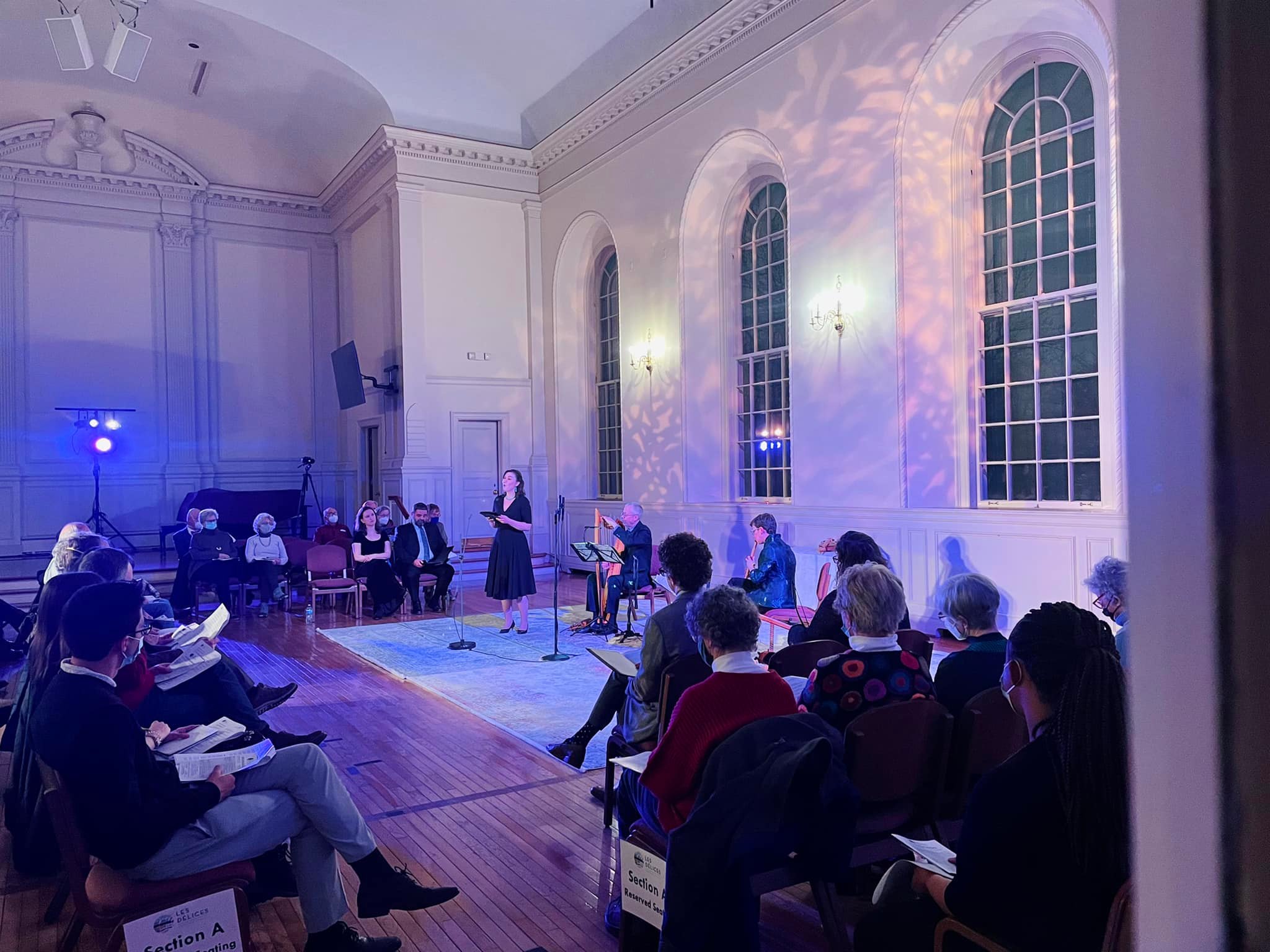by Stephanie Manning

Musically, “Of Gods & Heroes” focused on the 14th century, with works by Guillame de Machaut, Matheus de Perusio, Johannes Ciconia, Jacopo da Bologna, and the ever-present Anonymous. The overarching theme divided the concert into six sections, four of them paired with a relevant poem, including tales of Pygmalion & the Statue, Jason & Medea, and Ulysses & Circe.
The longest and most complex section was titled Tristan & Isolde, a collection of seven short works tied together by Marie de France’s poem Lai de Chevrefoil. This and all other poems were delivered convincingly by the narrator for the evening, former Ohio Poet Laureate Dave Lucas, who also authored the opening Prelude, Offstage.
Interspersed between certain musical selections, Lucas’ narration advanced the story piece by piece and would often be underlaid with an instrumental work, allowing for a very natural transition between story and music. Artistic director Debra Nagy (Medieval winds and harp), Allison Monroe (vielle), and Scott Metcalfe (vielle and harp) worked as a cohesive unit, bringing the emotions of the characters to the forefront.
Aside from Lucas, the other artists tasked with delivering words were the three singers: soprano Elena Mullins, mezzo-soprano Kim Leeds, and tenor Jason McStoots. Though Mullins’ lovely, agile voice was slightly covered by the combination of two vielles in Machaut’s Je puis trop bien, it was perfectly paired with harp in J’ai mon cuer mis. McStoots’ light tone and graceful high register were on full display during the pleasant Quant me souvient and Perusio’s impassioned Dame d’honnour.
Leeds’ rich, attention-grabbing mezzo had no trouble standing out from the texture, and her rendition of Perusio’s Dame Souvrayne was a highlight. Despite some struggles with keeping the harp in tune due to the chilly weather, the performance was lush and heartfelt, with Leeds’ every delivery of the word “merci” perfectly infused with emotion.
The instrumentalists also got their time in the spotlight during the energetic La Rotta, the rousing La Manfredina, and the mournful Lamento di Tristano, which featured a haunting vielle solo from Monroe performed while entering from offstage. And all three singers came together without accompaniment for Bologna’s Si chiome al canto, where a lovely exchange of melismas ended in a beautiful unison. Their performance was elevated by their precise coordination, their impressively stable straight-tone singing, and the venue’s perfect reverb.
Sadly, all stories and performances must come to an end, but the goodbye is not permanent, as Lucas echoed in his original poem:
and what can we but sing
what but rage and love
in the middle of things
where we always end
Published on ClevelandClassical.com March 4, 2022.
Click here for a printable copy of this article



